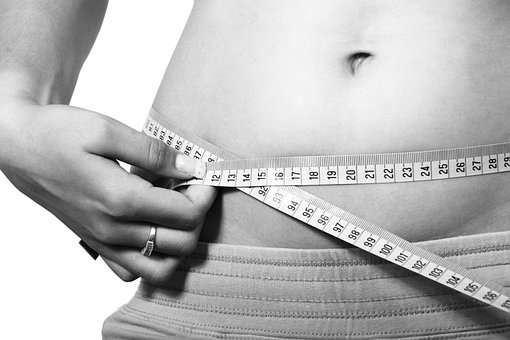Silenttest.com may earn a commission when you purchase products from companies we are affiliated with through promoting their products, at no extra cost to you. Prices are the same when buying products through an affiliate or non-affiliate link. Full Disclosure
You may experience weight gain after quitting smoking. This phenomenon is attributed by variety of factors, including changes in metabolism, altered behavior and increased appetite.
When you stop smoking, your body’s metabolism slows down, which then causes your body to burn fewer calories than before.
In some cases, you may find yourself turning to food as a substitute for cigarettes, a great cause for weight gain. Instead of focusing on food, you can use a nicotine replacement therapy as a substitute for nicotine.
Oh! remember you should not consider continuing with smoking for the likelihood of adding weight, the smoking cessation benefits outweighs your thoughts on weight gain.
Quantifying weight gain after smoking cessation


Weight gain is a common problem after quitting smoking.
On average, you may gain 5-10 pounds in the first few months after quitting smoking. Conversely, it’s important to remember that not everyone experiences the same weight gain and you may or may not gain weight.
Factors that may influence weight gain after quitting smoking:
Gender: Women are more likely to gaining more weight than men when they quit smoking.
Age: Older people may gain less weight than younger people.
Weight Before Quitting: People who were already overweight or obese before quitting smoking are more likely to gain weight after quitting smoking.
Dietary Changes: Some people can compensate for nicotine loss by eating more, especially foods high in fat and sugar.
Physical Activity: Lack of exercise can contribute to weight gain.
Genetics: Some people may be genetically predisposed to gaining weight after quitting smoking.
reasons why quitting smoking can lead to weight gain


Smoking cessation have many benefits for your health, including reduced risk of heart disease, developing lung cancer, and other smoking-related illnesses.
However, for one reason or the other, you can experience weight gain, which can be a concern.
- Nicotine is an appetite suppressant
Nicotine in cigarettes can decrease your appetite and at the same time increase your metabolism. When you quit smoking, your body no longer receives nicotine and that’s why you may experience weight gain.
You can control the appetite by eating healthy and avoiding sugary foods and carbs.
- Eating may replace smoking
Smoking can serve as a way to manage stress or boredom, and when you quit smoking, you may find that you eat more to fill the void left by smoking.
To curb this, use nicotine replacement therapy(NRT) such as:
1.gums
3.lozenges
- Changes in metabolism
Quitting smoking can also cause changes in your metabolism, leading to a slower metabolism and potentially making it more difficult to burn calories.
- Taste and smell improvements
Smoking can damage your taste buds and sense of smell. When you quit smoking, your taste buds and sense of smell improve, making food more enjoyable, and possibly leading to an increase in food intake.
Considering NRT kit will be a great idea to switch your taste of smell from food to something else.
Pro Tip: health benefits of quitting smoking far outweigh any potential weight gain. If you’re concerned about weight gain, consider the tips below on how you can successfully manage weight gain upon quitting smoking.
tips on healthy eating and other practices


Bravo on quitting smoking! Making healthy food choices can be an important step towards maintaining a smoke-free lifestyle.
These tips will help you big time in managing weight which is as a result of quitting smoking.
1.Eat a balanced diet: Make sure you are getting a variety of foods from all the food groups, including fruits, vegetables, whole grains, lean proteins, and healthy fats.
This will provide you with the necessary nutrients to support your body’s recovery from smoking and help you maintain a healthy weight.
2.Stay hydrated: Drinking plenty of water can help you manage cravings and reduce the side effects of nicotine withdrawal, such as headaches and fatigue.
3.Eat smaller meals more frequently: Eating smaller, more frequent meals can help keep your metabolism elevated and prevent overeating.
4.Choose healthy snacks: When you feel the urge to snack, choose healthy options such as fruits, vegetables, nuts, and seeds.
Avoid processed snacks that are high in salt, sugar, and unhealthy fats.
5.Limit caffeine and alcohol: These substances can trigger cravings and disrupt your sleep, which can make it harder to stay smoke-free. Aim to limit your caffeine and alcohol intake, or avoid them altogether if possible.
6.Take your time when eating: Eating slowly and mindfully can help you tune in to your body’s hunger and fullness signals. This can prevent overeating and help you maintain a healthy weight.
7.Plan ahead: Planning your meals and snacks ahead of time can help you make healthy choices and avoid the temptation of unhealthy foods.
8.Seek support: Eating healthy after smoking cessation can be challenging, so don’t be afraid to seek support from friends, family, hypnotherapy sessions, or healthcare professional.
They can provide you with encouragement and practical advice to help you stay on track.
The ultimate goal towards achieving these goals is being disciplined and be patient with the process. Gaining weight after you stop smoking is not a permanent deal, it will disappear.
Quitting smoking is better, despite weight gain.


Gaining weight after quitting smoking is only a small price to pay for the numerous health benefits of quitting. Adding weight is among the nicotine withdrawal symptoms of which all can be managed with the right techniques, so you don’t have to worry much for gaining weight unless it leads to other health problems.
But again, with appropriate measures, like healthy eating, you rest assured of no weight gain health complications. Additionally, there are many ways to manage weight gain after quitting, such as regular exercise and a healthy diet.
Quitting smoking is one of the best decisions you can make for your overall health and well-being. While it’s true that you may gain weight after quitting smoking, the benefits of quitting far outweigh the potential for a few extra pounds.
Here are some reasons why:


- Improved lung function: Smoking damages your lungs, and quitting helps improve your lung function and reduce your risk of lung cancer and other respiratory illnesses.
- Better cardiovascular health: Smoking is a leading cause of heart disease, and quitting improves your overall cardiovascular health and reduces your risk of heart attack and stroke.
- Improved sense of taste and smell: Smoking can dull your sense of taste and smell, but quitting can help these senses return to their normal levels.
- Reduced risk of cancer: Smoking is linked to several types of cancer, including lung, throat, and bladder cancer. Quitting reduces your risk of developing these cancers.
- Improved mental health: Smoking can worsen anxiety and depression, and quitting can improve your mental health and overall well-being.
So if you’re a smoker thinking about quitting, don’t let the fear of potential weight gain hold you back. Remember that quitting smoking is one of the best things you can do for your health, and there are many resources available to help you through the process.
FAQs


How much weight do you gain when you stop smoking?
Weight gain varies from person to person depending on a variety of factors, like age, genetics, gender, diet and lifestyle.
On average, after quitting smoking, you are likely to add about 5 to 10 pounds (2.3 to 4.5 kilograms) in the first few months of quitting.
Adding weight is typically characterized by factors, such as an increase in appetite, change in taste, decreased metabolism, and smell perception.
How can I speed up my metabolism after quitting smoking?
Quitting smoking can have a significant impact on your metabolism, since nicotine increases the metabolism and reduces the appetite.
When you stop smoking, your metabolism may slow down, and your appetite may increase which can make you a foodie, thereby resulting in weight gain.
You can speed up your metabolism after quitting smoking with these helpful tips:
- Exercise regularly
- Build muscle
- Eat a balanced diet
- Stay hydrated.
- Get enough sleep
- Manage stress
Can I lose weight after quitting smoking?
Yes, it is possible to lose weight after quitting smoking. In many cases, weight gain cases are more experienced than weight loss but with a proper diet and exercise, it is possible to lose weight and maintain a healthy weight after smoking cessation.
You can lose weight after quitting smoking this way:
- Eat a healthy diet that is rich in fruits, vegetables, whole grains, and lean protein.
- Avoid sugary and high-fat foods
- Drink plenty of water
- Exercise regularly
- Get enough sleep
How long does weight gain last after quitting smoking?
Weight gain after quitting smoking is typically highest in the first three months, and it usually levels off by six months to a year after quitting. This is because smoking can increase metabolism, and when you quit, your metabolism slows down, which can lead to weight gain.
You can successfully manage weight gain after you quit smoking, and within no time achieve your body goal.
All in all, weight gain should not be a reason to continue smoking. The benefits of quitting smoking far outweigh the risks of gaining weight. In that consideration, start or continue with your journey of kicking the habit!
Final Verdict
Gaining after quitting smoking should not be a hindrance for you to continue smoking. As long as there is a solution to the weight gain, then you don’t have to stress up!
Smoking cessation is the best decision you can do for your own health and for those surrounding you. If your weight gain is caused by the urge to replace nicotine with food, why not replace it with a something like;
- chewing gums
- patches
- Lozenges
- inhaler
